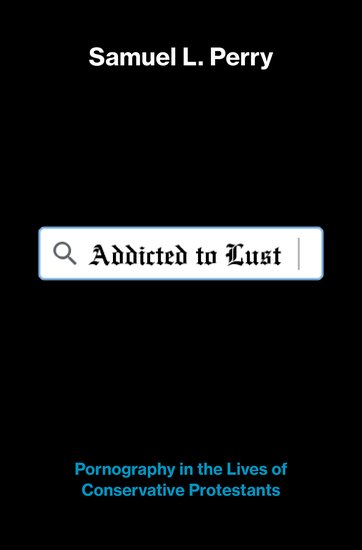

(RNS) — American evangelicals have a pornography problem, but it may not be the problem you think.
It’s not that they are all secretly using porn at higher rates than average. According to University of Oklahoma sociologist Samuel L. Perry’s recent study, published by Oxford University Press, conservative Christians — a catchall that Perry uses to describe evangelicals with certain key theological beliefs — don’t actually use porn as often as other Americans do.
Yes, their porn use has risen over time, and that increase has caused significant hand-wringing in the church. (More on that in a moment.) But according to several decades of General Social Survey data, conservative Christian men’s porn consumption tracks that of all American men over the same time period. And since Christians’ porn usage was lower to start with, it’s still lower.
What’s more, the most committed Christian men — those who say they have had a born-again experience or have tried to convert someone else to the faith – have even lower rates than conservative Christians as a whole, and these super-Christians’ consumption does not seem to be increasing over time.
 As Perry puts it in his study, “Addicted to Lust: Pornography in the Lives of Conservative Protestants,” “This suggests that, unlike those who simply affiliate with a fundamentalist or an evangelical denomination, conservative Protestant men for whom their faith is more meaningful and authoritative seem to be resisting the growing trend among American men to view porn, even in the midst of the internet revolution.” (And no, it’s not from underreporting due to a social desirability bias, as the book takes pains to explain.)
As Perry puts it in his study, “Addicted to Lust: Pornography in the Lives of Conservative Protestants,” “This suggests that, unlike those who simply affiliate with a fundamentalist or an evangelical denomination, conservative Protestant men for whom their faith is more meaningful and authoritative seem to be resisting the growing trend among American men to view porn, even in the midst of the internet revolution.” (And no, it’s not from underreporting due to a social desirability bias, as the book takes pains to explain.)
So, that’s the good news, which happens in the first 30 pages or so of Perry’s well-written, accessible and meticulously researched book.
So … what’s the problem?
There are several. Drawing on numerous studies, Perry finds that, despite the statistical finding that conservative Christians are less likely to use porn, the perception within evangelical churches is that this has become an enormous problem for the faithful.
To them, the fact that only 40% of conservative Protestant men under age 40 have seen porn in the last year is not cause for rejoicing but for alarm — and the alarm itself may be creating, or at least exacerbating, psychological and marital problems for those Christian users.
Whereas many other Americans seem to be able to view porn without it causing significant mental health problems, for conservative Christians it’s different. The church’s zero-tolerance policy for porn means those who consume it only occasionally might see themselves as addicts from the first viewing. So even though conservative Christians use porn less than other Americans, they are statistically twice as likely to consider themselves “addicted” to it. Their shame can be soul-crushing.
Christians who do use porn are more likely than other believers to reduce their involvement in their churches, or even to exit religion altogether. That’s because conservative Protestants who become “born-again” are “supposed to have a new relationship to sin,” Perry says, and to become victorious over any temptations of the flesh. If they continue to struggle with pornography, some start to wonder if they were ever truly saved in the first place. Rather than face the prospect of “willingly violating those moral values that are most sacred to oneself and one’s community,” some drop out of the fold.
There’s a double dose of pain for conservative Christian women who use porn, a topic that gets its own well-deserved chapter in Perry’s book. In addition to extreme guilt about porn as it relates to their Christian faith, women also worry they’ve violated one of the key codes of evangelicals’ gender ideology, which stipulates that men lead and women follow.
Complementarian theology has no place for female lust or assertiveness, so women who are turned on by porn are considered bizarre, unfeminine aberrations. One fascinating point the book makes is that, however strongly conservative Protestants condemn men’s porn use, they also prop up a porn habit as part of a masculine gender identity. For women there is only increased isolation.
Pornography use does not appear to contribute to noticeably higher divorce rates nationally, but it does seem to be a factor for conservative Christians. Their rate of divorces initiated by wives who were upset at their husbands’ porn use was more than double that of American women generally. And while there’s no evidence that porn use makes for happier marriages for just about anybody, the happiness deficit is worse among conservative Christian couples when one spouse is using porn.
Bottom line? Porn isn’t terrific for relationships, as users in general (especially men) report lower relationship quality than those who do not consume it.
But for conservative Christians the effect is far more damaging. They experience greater levels of guilt and shame, are more likely to carry out their behaviors in secret and have a higher risk of divorce.
And because these Christians engage in what Perry calls “sexual exceptionalism” — regarding sexual transgressions like pornography use as far worse sins than, say, hoarding wealth, screaming at one’s children or spreading gossip about a neighbor — their spiritual well-being and entire Christian identity rest on this one factor.
